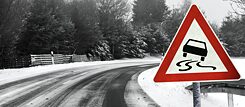April 23rd marks the Day of German Beer. On this date, it was determined that beer may only be made from exactly four ingredients: water, malt, hops and yeast. Nevertheless, there are many different varieties, in each city and in each region the preferences vary. Summer is just around the corner, and the beer garden is once again a popular meeting place – even for people who prefer to drink something else.
More information on how it is produced and why it was historically important in this month’s reading passage by
Presse und Sprache. The text is suitable for level B 1.
Carnival, Fasching! It is a tradition in Germany to dress up with costumes at this time of year. This is primarily meant to be fun and can be an imaginary character or another identity – a king or queen, a football star or a monster. Today there is a growing consciousness that the costumes should not reinforce racist stereotypes or exclude minorities.
This month, the reading text from Presse und Sprache talks about this. It is suitable for learners at language-level B 1.
"Granfluencers" show on social media, that the older generation also enjoys the fun of presenting themselves on TikTok, Facebook or Instagram.
Erika Rischko shows that she is still active in old age and enjoys life. When she dances with her husband, more than 100,000 people follow her.
Who is really behind the accounts? Is this cool or is someone just looking for a gap in the market?
Discuss this listening text on language-level A2 from Presse und Sprache with your German learners!
We all want to save energy – on the one hand, this protects the environment, on the other hand, electricity and gas are currently becoming much more expensive. The author thinks we could start by wearing warmer clothes and generally consuming less.
What ideas do your learners have on the subject? Discuss the new article in Presse und Sprache in the month of November.
This text is suitable for learners with the language level B1.
The village store closed years ago, the big supermarket is 30km away, and the bus runs twice a day, if at all. In rural areas, it can be difficult for people without cars to buy groceries.
There is, however, an ingenious solution to this problem, presented to us by Presse und Sprache this October: the rolling supermarket!
With the easy reading and listening text and exercises, you and your A2 learners can try out a new approach to the classic topic of grocery shopping. We hope you will enjoy it!
Autumn is here, and at least in Germany it has become quite cold quite suddenly. Time for something warm to cover your ears: How about a podcast?
This September Presse und Sprache's recommendation is a column about podcasts and personal listening preferences. Whether it's on the way to work, for relaxation, before falling asleep... there's a podcast for every situation and all interests. Get the discussion going with this easy reading passage with tasks suitable for level B1 and up. We hope you enjoy it!
After umpteen lockdowns and travel restrictions, it seems like everyone has caught the travel bug at the same time. The news in Germany is full of reports about chaos and waiting times at airports, delays and missed flights.
Presse und Sprache looks at post-pandemic wanderlust in an easy reading and listening text at level B1. In addition to exercises and answer keys, you will also find didactic tips for classroom use in the August materials. We hope you’ll find it useful!
This July, we are going on a walking tour with our partner Presse und Sprache. Can you imagine walking 30km or more every day, no matter what the weather, your luggage on your back? That's exactly what this article is about. T
ake your learners on this journey finding out how a successful manager gave up her job to follow her passion and became a professional hiker in this text for level A2, complemented by reading comprehension tasks and answer keys. Have fun with it in class!
This June, Presse und Sprache is taking us to Berlin once more, where summer has arrived with high temperatures. Not only are Berlin summers getting warmer – they have also been far too dry for years, making it hard for city trees to survive.
In the latest article your course participants with A2-level and above will read – and hear – how an online platform is helping city dwellers help the trees while also networking with like-minded people. As usual, there are word explanations and an answer key. Enjoy and keep a cool head in your German class with this “hot” topic!
Foxes used to live in the woods, but have become a common sight in parks, gardens and even on the streets of German cities. The fox as a city dweller has undergone a remarkable image change in Germany.
In May, Presse und Sprache offers an article for the animal lovers among us. Learners at language level A2 and above can find out why more and more foxes are moving from the countryside to the city, how they feed, and what curious encounters are possible with these new urban dwellers.
Use this reading text as a versatile stimulus for an exchange on A2 topics such as living, city or countryside, transportation, etc. which we hope you and your students will enjoy.
Have you ever been on an uphill bike ride that's slow and tedious? Then someone overtakes you on an electric bike that also has room for a child, dog and groceries. Who wouldn't be jealous?
The electric cargo bike - loved by some, criticized by others – is discussed in this month's Presse und Sprache.
The author writes from her personal perspective about the advantages and disadvantages of this means of transport, which has become a status symbol in major German cities.
Present the "cargo bike controversy" to your learners for discussion. The reading text with the accompanying exercises at B1 level provides a great introduction.
Traveling around the world for months and attending school at the same time - a fantastic, somehow absurd idea, especially after two years of pandemic and travel restrictions - right?
The February article from Presse und Sprache takes us on this one-of-a-kind learning experience. Every year, the sailing ship Thor Heyerdal departs from Hamburg with around 40 students on board. What they experience during their trip, where they go ashore, how they learn: Let your students from A2 level find out.
Beware: Reading may invoke jealousy!
With temperatures around 0°C, snow and rain alternating, it's getting slippery on Germany's roads.
Resourceful Bavarians have started using cucumber water to make the roads safe.
What at first sounds like a wellness drink is actually an environmentally friendly recipe for success against black ice. Want to find out how and why this works? The January article from Presse und Sprache is just the read for you and your students. The accompanying material with exercises for reading comprehension will certainly not lead your learners down a slippery slope.
We hope you and your students enjoy the material!
The year is nearing its end - and for many that means Christmas preparations. In keeping with the Christmas theme, the Presse und Sprache article for December introduces us to a foundation that has been running a special campaign for many years. It collects Christmas presents and donates them to children who might otherwise go empty-handed.
This month's easy reading text with word explanations and the matching audio text are suitable for learners with level A2 and up. A good conversation starter, don't you think - what would your students put in a parcel?
Germany is known for its sophisticated waste sorting system. What goes in the green, brown, yellow and blue bins? Many a newcomer despairs here under the stern gaze of their new neighbours. And yet, sadly and ironically, Germany is the number one producer of plastic trash in Europe. In our November article for Presse und Sprache you'll find out what each and every one of us can do to keep from drowning in a sea of plastic trash.
This reading text, annotated with vocabulary glosses, and the accompanying listening text with exercises are suitable for German learners from level B1 and up. They'll give your German learners an opportunity to think about their own behaviour as consumers. Which is something we should all be doing - in and outside of language classes, right?
Easy access to shops, cafés and residential buildings is often but a pipe dream for people in wheelchairs or pushing prams, for they are all too often denied access to all sorts of places. But people like "Lego Granny" feel we should do something about all those barriers, so they’re implementing a creative solution to the problem in more and more places in Germany. Our Presse und Sprache article for October presents an exciting initiative to help break down the barriers in Germany one by one.
This easy-to-read text, annotated with vocabulary glosses, and the accompanying listening text with exercises are suitable for German learners from level A2 and up. The topics covered in this material also provide a basis for exciting conversations about similar initiatives where you live and about inclusivity in general. So make the most of it – and have fun with it!
They look cute with their fluffy heads and beady eyes – but did you know alpacas are anything but cuddly? On the other hand, they’re great companions on a nature hike. You can find out why, and where you can go hiking with an alpaca, in our September edition of Presse und Sprache.
As always, the article is supplemented with vocabulary aids (from CEFR level A2) as well as a listening text with exercises – in order to train writing skills, too, this time around.
Who can resist these woolly denizens of the Andes? We can't - and your participants probably can’t either!
Traveling in a camper is currently very popular: with a camper you are free and can be in a different city every day or even wake up by the sea in the morning. Some people also live permanently in a camper and work digitally.
The May article of Presse and Sprache introduces us to the possibilities of traveling and living in a camper, taking us to the most beautiful places in Germany, Europe and the world.
The easy reading text with word explanations (for level B1 GER and up) and listening text with exercises provides material for studying the topic.
Have you ever thought of exchanging your house or apartment for a "house on wheels"?
Yes? Or maybe just for a vacation? Why not discuss this topic in your German classes! As always, we hope you and your participants enjoy listening, reading, and practicing German!
To help ships find their way safely through waters, lighthouses have existed for a long time. They help determine position through their beacons and warn of shoals or dangerous spots in the water.
The April article of Presse und Sprache deals with these eye-catching landmarks, which today are also considered tourist attractions!
The reading text with word explanations (for level B1 GER and up) and listening text with exercises [[insert link]] provides material for studying the history of lighthouses and introduces the most famous German lighthouses.
For example, do you already know the lighthouse "Roter Sand" on Wangerooge?
No? Then perhaps this would be a suitable topic for your German lessons! We wish you and your participants a lot of fun listening, reading and practicing German!
Because of Corona, many people can't travel at the moment. But there is a free and convenient way to travel, for which you do not even have to get up from the sofa: A vacation in your own room!
In the March article of Presse und Sprache you will learn how to take a vacation without leaving your home and what stories objects can tell!
In the easy reading text with word explanations (for Level A2 GER and up) as well as listening text with exercises we find material for a short vacation without leaving our own home. How about a short trip to the sea in your own room or classroom?
We wish you and your participants a lot of fun reading and practicing German!
For dating today, many use apps like Tinder or Loovoo. But there is another way: in Schleswig-Holstein, lovers send letters to a tree and hope for true love.
In the February article from Presse und Sprache, you can learn the story of this tree, which is called the "Bräutigamseiche" (groom's oak). Find out which lovers the tree has already brought together and at what address you can write to the tree.
In the easy reading text with word explanations (for Level A2 GER and up) as well as listening text with exercises we get material for the exciting story of the "Bräutigamseiche". Maybe a suitable topic for your German lessons?
We wish you and your participants a lot of fun reading and practicing German!
Do you know this situation? You want to cook something delicious for your family or friends, but then you are missing an important ingredient. Unfortunately, the stores are already closed.
In the January article of Presse und Sprache there is a solution to this problem: "Meal kits". Find out which meal kits are available and read more about why meal kits can make cooking at home more relaxed and easier.
In the easy reading text with word explanations (for Level A2 GER and up) and listening text we get material for exciting discussions about the new trend of meal kits. Perhaps also a topic for your German lessons?
We hope you and your participants enjoy reading and practicing German!
Cooking is best with a meal kit - isn't it?
What do you think: When it comes to leaving your childhood home, which group, statistically, is more likely to continue living with their parents, i.e. in the "Hotel Mama", young women or men? At least in Germany, the answer is clear.
In the December article of Presse und Sprache we once again focus on the topic of housing. Find out if you guessed right and read more about the topic of when young people in Germany leave their parents' house.
The easy reading text with word explanations (for level A2 GER and up) and listening comprehension with exercises and suggested solutions will certainly provide material for lively discussions and interesting international comparisons.
We wish you and your participants a pleasant and instructive read!
There’s no place like home - right?
Living in the city centre, enjoying a view over the skyline - very few people can afford this dream. High rents and a housing shortage are a challenge known to all major cities in Germany.
In the November edition of Presse und Sprache, we meet a young man who makes this dream come true in a very unconventional way. His little house has been placed on many roofs in different big cities in the past years. But he has to move quite often...
Let’s learn more about him and his unusual living concept in the easy reading text with word explanations (for level A2 GER and up) and the listening comprehension with exercises and suggested solutions. Perhaps an exciting topic for one of your lessons, too?
We hope you and your students enjoy the read!
October 3 is German Unity Day. The occasion is German reunification: the end of the division of Germany into two states. As we celebrate the 30 year anniversary of German reunification, there aren't many traces left of the wall that ran across the the city of Berlin for 28 years. In some places, however, the memory comes alive.
The October article by Presse und Sprache takes you and your
students to a special place in Berlin where visitors can experience what everyday life in the shadow of the Berlin Wall felt like.
In the easy reading text with word explanations (for level A2 GER an up) and the listening comprehension with exercises and suggested solutions, we find out where this place is located and what visitors can expect there. The material can be used in class as usual.
We wish you an exciting read, a happy holiday and much success in class!
How yodelling enthusiast Takeo Ishi turned his passion into his profession – and what that has to do with his favourite animal: find out in our September issue of Presse und Sprache, which recounts a most peculiar professional history.
Just in time for Oktoberfest – which, alas, can’t be held this year – our easy-reading article (for German levels A2 and up), with challenging vocabulary explained, and our listening comprehension passage, with exercises and suggested solutions, tell the riveting story of a very special exponent of this traditional Alpine form of singing. As usual, the material can be used in class.
So have fun with the article! And yodelayheehoo!
We use it to send holiday and birthday greetings or to simply say "thank you": the postcard is an indispensable part of our everyday life. When did this colourful photo greeting actually come into existence? What is the secret of its success? And why were there also critical voices at the beginning of its path?
This August, Presse und Sprache takes us on a journey into the history of the postcard. The easy reading text with word explanations (from A2 GER) and the listening text with exercises and suggested solutions can be used in class.
Want to get a taster subscription of "Presse und Sprache"? Find more info in the reading text underneath the exercises.
So, when was the last time you sent a postcard?
Solidarity in the neighbourhood at the time of the Corona crisis: In recent months, many projects and initiatives have been setting examples for what this can look like. Support groups for shopping, for instance, when you cannot go out on your own for health reasons.
What other forms of neighbourhood help are there? How does balcony bingo work, for example, and what prize can you win? And what exactly is facade cinema?
Presse und Sprache is providing us with material from its July edition containing the answers to these
questions. It consist of an easy reading text with word explanations (from A2 GER) on the topic of sticking together in the corona crisis. The text can also be used in class as a listening exercise with a work sheet and suggested solutions.
We hope you’ll enjoy using this in your class!
For the past 11 years a special event has been taking place in the botanical garden in Berlin, and it’s always a magical experience for visitors.
This year is no exception: the Fest der Fantasie will be celebrated there again in July.
The following text – which can be used as a German teaching resource from Level A2 – gives an account of when it kicks off, what exactly happens at the event, and what you can see and experience there.
The text and exercises are taken from the July edition of Presse und Sprache.
Anyone attending school in Germany is in all probability going to encounter a work by Theodor Fontane in their German classes.
This year we celebrate his 200th birthday. As well as the novel “Effi Briest”, many students particularly remember the poem entitled “Herr von Ribbeck auf Ribbeck im Havelland” – because they had to learn it by heart. A particularly beautifully illustrated version read by the actor Otto Sander can be found on YouTube. Some students have shown that a completely different take on “Squire von Ribbeck” is possible – they’ve turned it int Rip Rap Ribbeck. It’s perfect for acting out and rapping along.
Presse und Sprache has provided us with the following material containing an easy reading passage with word explanations (from Level A2 GER) about the life of Theodor Fontane. The text can also be used as a listening comprehension with exercises.
Here’s a quotation that’s essential for all students of German as they progress along their learning path:
Wer aufhört, Fehler zu machen, lernt nichts mehr dazu...
Theodor Fontane
If you stop making mistakes, you stop learning…
Wishing you every success in your learning!
100 years ago Walter Gropius started the Bauhaus movement in Weimar. This anniversary in 2019 is not just being celebrated in Germany but in many places around the world – and that’s because of the huge global influence this art school still has today on architecture and design, and the way we think about them.
German teachers – if you’d like to use Bauhaus as one of your topics for GFL/GSL lessons, you might find the following resources helpful.
You will also find this passage with word explanations, which has been provided by Schünemann-Verlag, in the May edition of Presse und Sprache.
The simple listening passage that can be used from Level A2 (GER) approaches the history of Bauhaus in three sections
The exercises include tasks to be done before, during and after reading, with the answers at the end.
























































